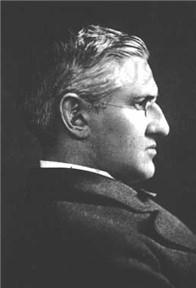Shauna Hernandez is a vital and beloved member of our team at EPM, where her many responsibilities include overseeing social media and marketing, organizing and implementing promotions, and supporting the office staff with various tasks.
 Shauna lived in Slovenia for 3.5 years working with youth through a local evangelical church, and now works with the youth at Cornerstone, her home church in Gresham, Oregon. She is newly married to Ryan, who she met on a short-term mission trip in Mexico. They currently reside in Gresham and enjoy their community, spending time with family and watching sporting events.
Shauna lived in Slovenia for 3.5 years working with youth through a local evangelical church, and now works with the youth at Cornerstone, her home church in Gresham, Oregon. She is newly married to Ryan, who she met on a short-term mission trip in Mexico. They currently reside in Gresham and enjoy their community, spending time with family and watching sporting events.
I greatly appreciated these thoughts Shauna recently shared about the loss of her mom and trusting God in grief. What she wrote is beautiful and powerful, and applicable to any who have suffered loss and pain. —Randy
Several months ago at church, we were singing “It Is Well with My Soul.” But after recently losing my mom to cancer, I didn’t feel like I was “ready” to sing it. As I tried to keep the tears back, I remember even telling someone I wasn’t ready. I felt that if I sang those words, I was saying it was OK that my mom died and that this thing called cancer took her life. It meant it was OK that my mom wasn’t going to be here for my wedding day or when I have babies. I wasn’t willing to admit that it was “well.”
Upon reflection, I realized that God wasn’t asking me to say that all these things were OK. Isaiah 66:12–14 says,
For this is what the LORD says: “I will extend peace to her like a river, and the wealth of nations like a flooding stream; you will nurse and be carried on her arm and dandled on her knees. As a mother comforts her child, so will I comfort you; and you will be comforted over Jerusalem. When you see this, your heart will rejoice and you will flourish like grass; the hand of the LORD will be made known to his servants, but his fury will be shown to his foes.”
This passage from the last chapter in Isaiah is talking about the fulfillment of all of God’s covenant promises He made to His people, and explains the hope of a new creation. God was acknowledging the terrible things that happened to the Israelites weren’t “OK” and saying He was going to redeem it all. He had something better for them.
I believe that God hates cancer. He hates pain and separation of His loved ones. I love that Isaiah says God “extends peace like a river.” He doesn’t just hand us a band aid to cover up the brokenness; He gives us peace that is unlike any the world can muster up (John 14:27).
So now when we sing “It Is Well with My Soul,” I understand it a little
differently. I see it as a future hope. It is well that my mom and I will be reunited someday. It is well that she is forever cancer free. It is well that maybe someday we’ll get to watch my wedding footage together. It is well that she’ll get to meet my kids and perhaps bake one of her famous pies for them. It is well that we’ll enjoy Jesus’ presence together, finally free from the curse.
Whatever your “It is not well with my soul” is, I pray that you’ll hand it to God and know that He sees your hurt and doesn’t ask you to paste a smile on your face to just “get through.” Grief is hard. Yet, if you choose to walk through grief looking to Jesus, it will produce beautiful things in you. A verse that has rung true in my soul while going through grief is Psalm 31:7: “I will be glad and rejoice in your love, for you saw my affliction and know the anguish of my soul.”
God sees and knows you. He has experienced the deepest pain. Trust Him with yours.
In reading Shauna’s words, I’m reminded of the history behind the hymn “It Is Well with My Soul,” which I researched and shared in my book If God Is Good:
 Horatio Spafford, a prosperous lawyer, real estate investor, and devout Presbyterian elder, lived comfortably in Chicago with his wife, Anna, and their children.
Horatio Spafford, a prosperous lawyer, real estate investor, and devout Presbyterian elder, lived comfortably in Chicago with his wife, Anna, and their children.
The year of 1871 was a difficult one for the Spaffords. Much of Horatio’s real estate investments disappeared in the great Chicago Fire. Not long after, they lost their 4-year-old son to scarlet fever. But worse still was to come.
Knowing that his friend D. L. Moody would preach in England in 1873, Spafford’s family decided to vacation in Europe. Last-minute business detained Horatio, so Anna and their four girls sailed on the ocean liner S.S. Ville du Havre. En route, a British vessel rammed the ship, and it sank within minutes. Rescuers picked up an unconscious Anna on a floating spar, but all four daughters drowned. When Anna arrived in England, she sent a telegram to Horatio with the words, “Saved alone.”
Horatio immediately left Chicago to bring his wife home. On the Atlantic crossing, the captain called Horatio to his cabin to tell him that they had nearly reached the spot where his four daughters had perished. As he passed over their watery grave, Spafford wrote a hymn of profound depth that has touched millions: “It Is Well with My Soul.”
He later wrote to Anna’s half-sister, “On Thursday last we passed over the spot where she went down, in mid-ocean, the waters three miles deep. But I do not think of our dear ones there. They are safe, folded, the dear lambs.”
The pain was great, but God’s grace rose to the occasion. Despite his heartbreak, Spafford could say without pretense, “It is well with my soul.”
Only God can perform such a miracle of grace. And that kind of miracle is available to us all.
Photo: Unsplash




